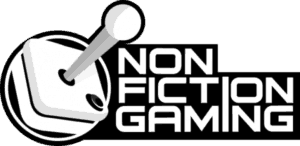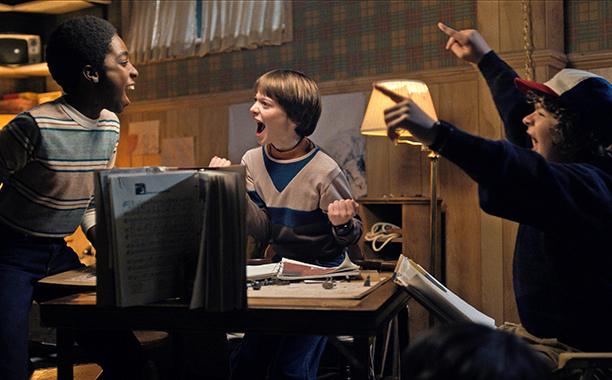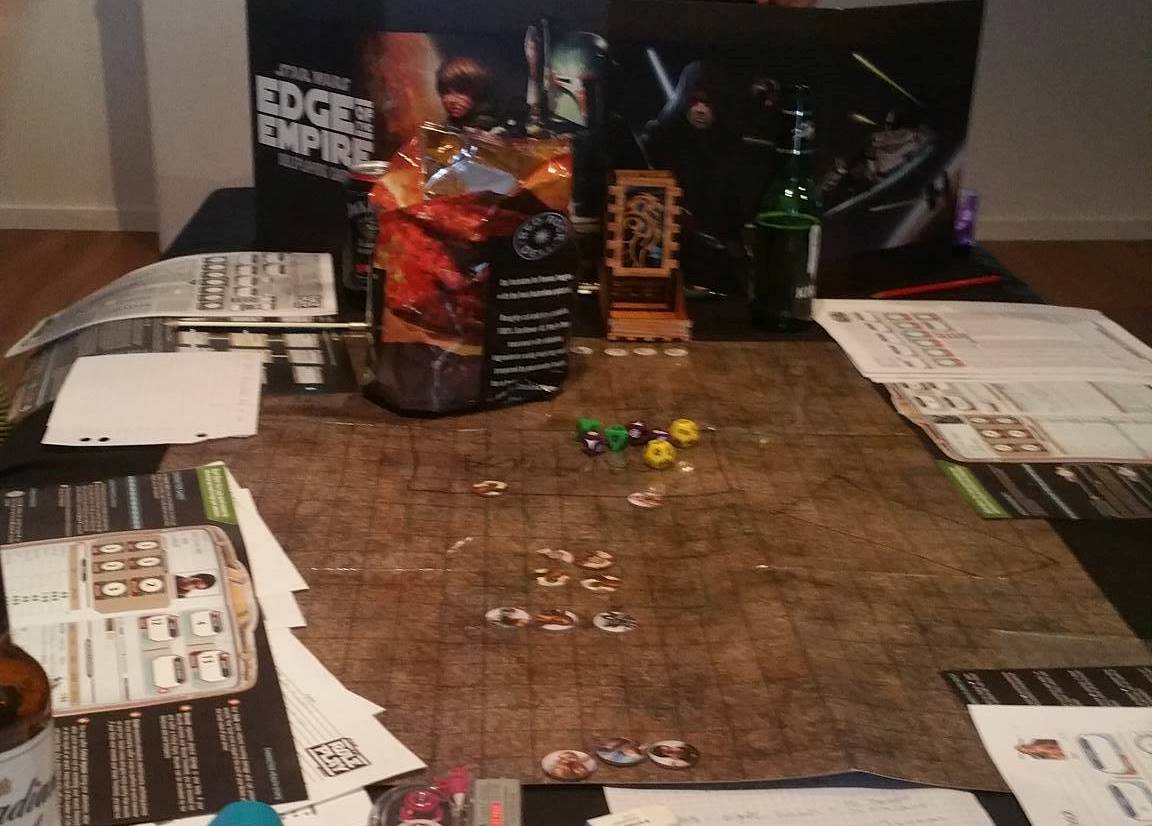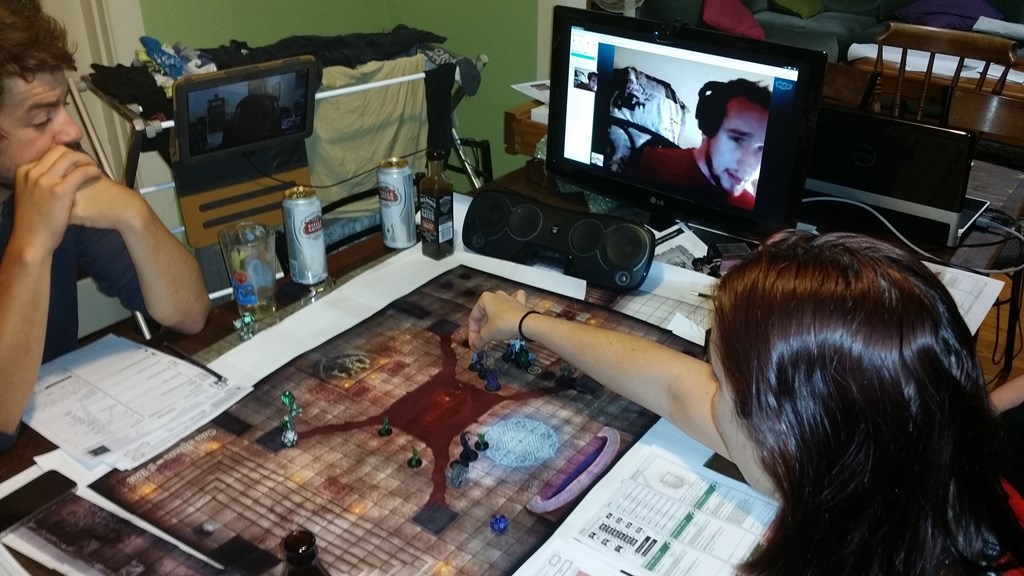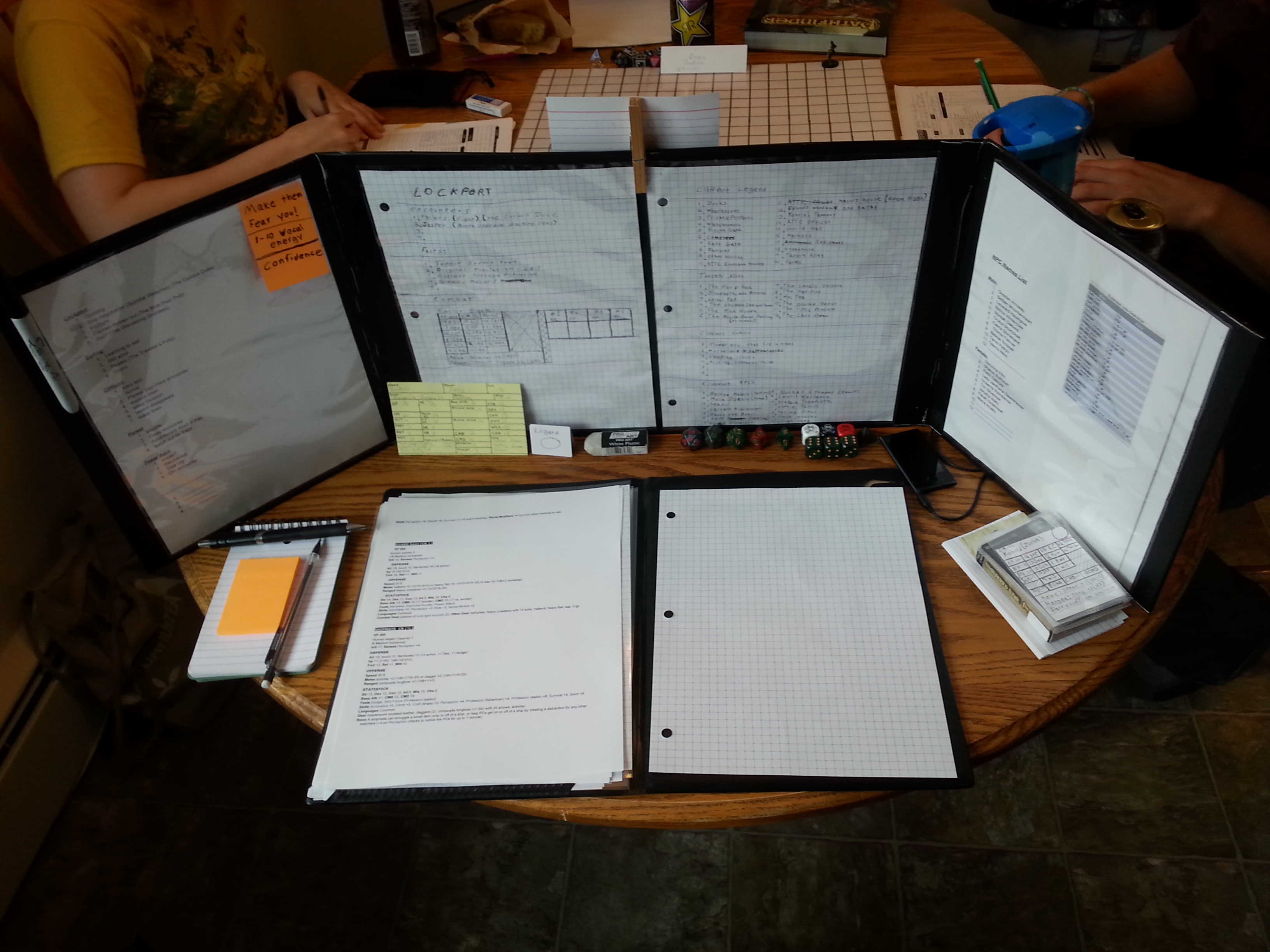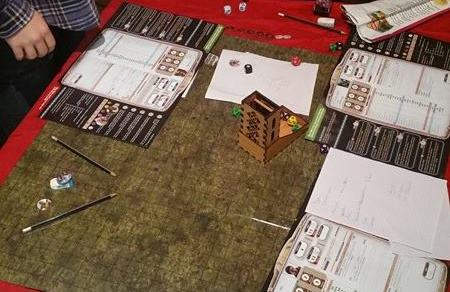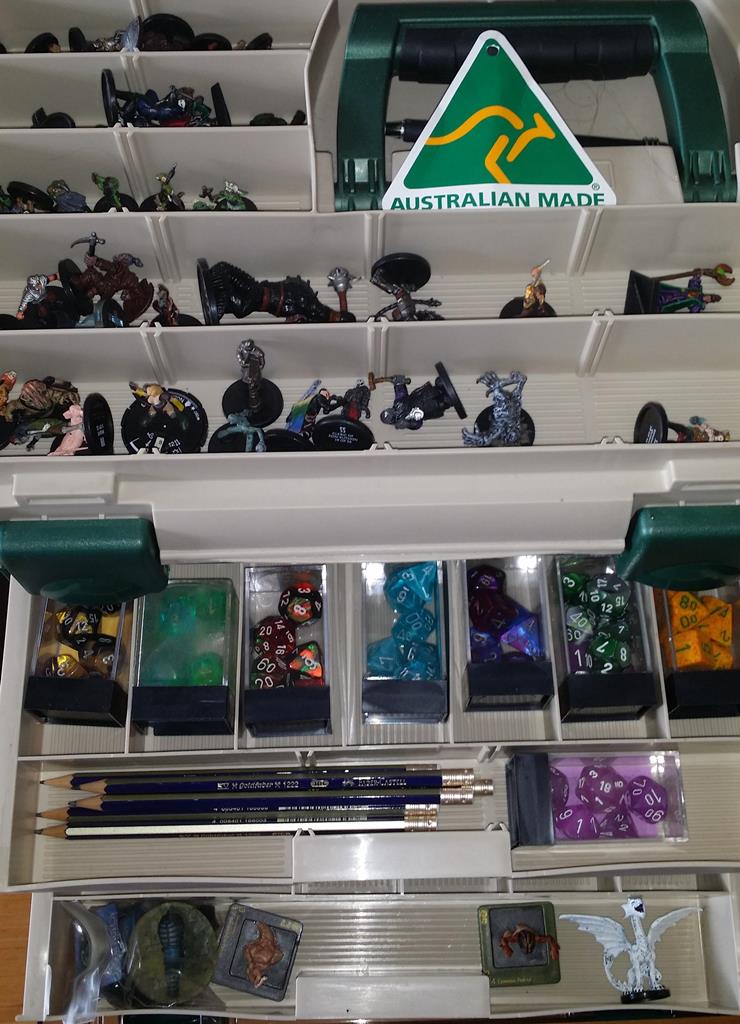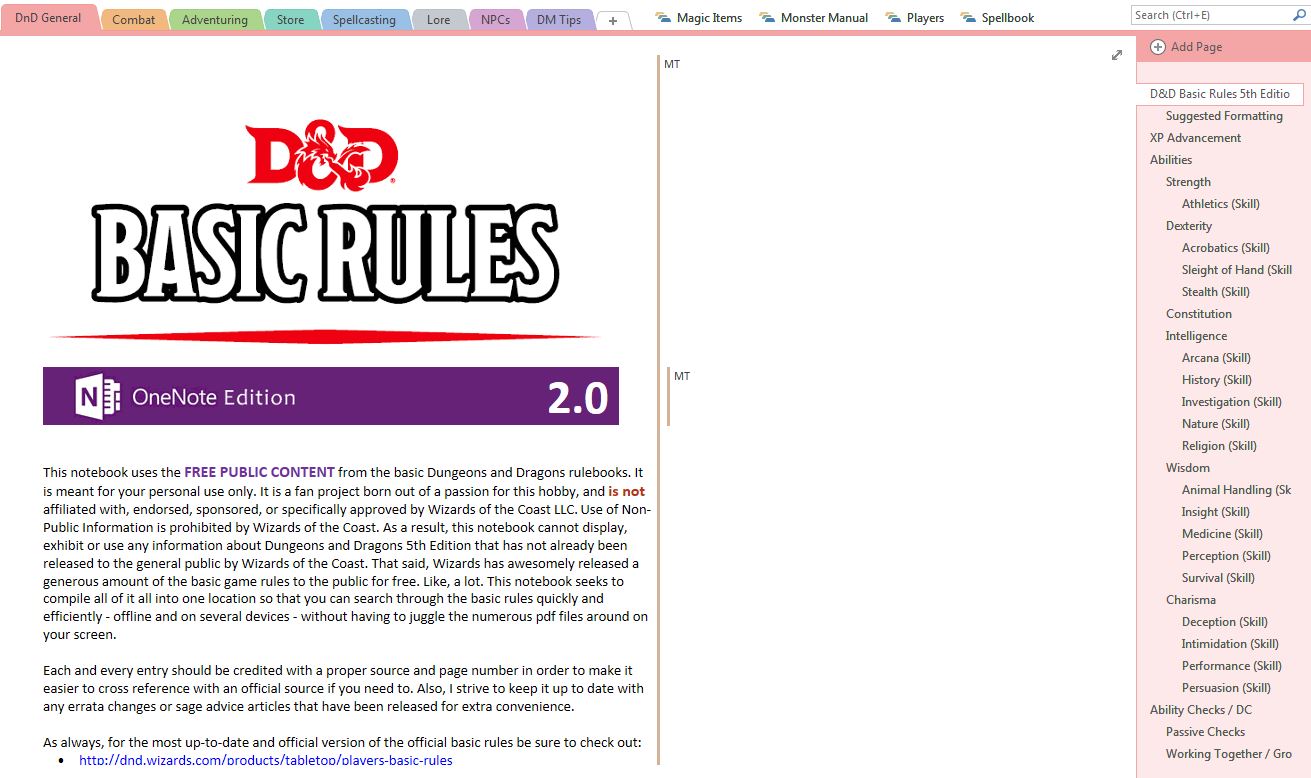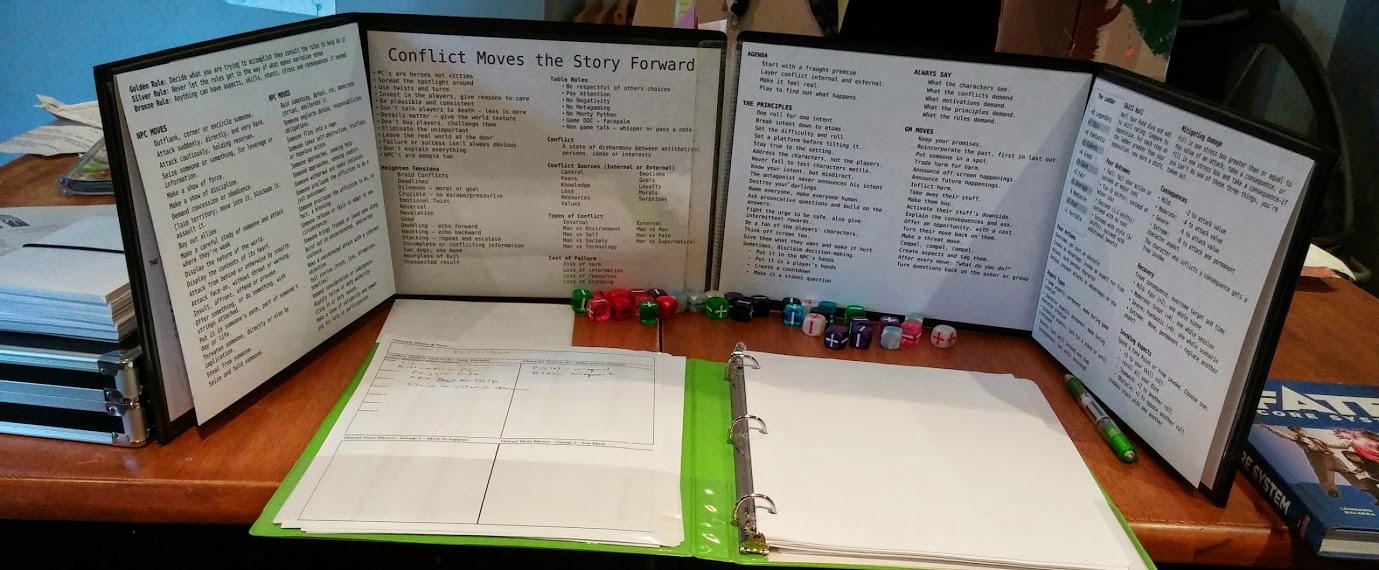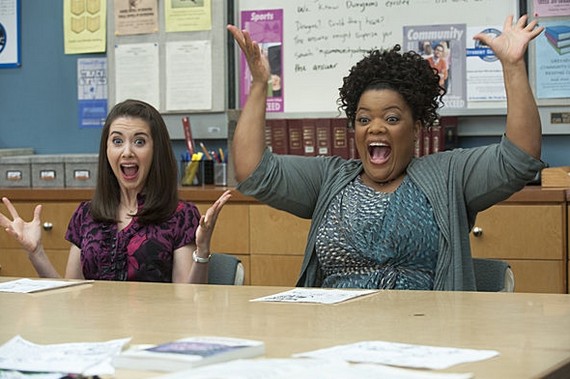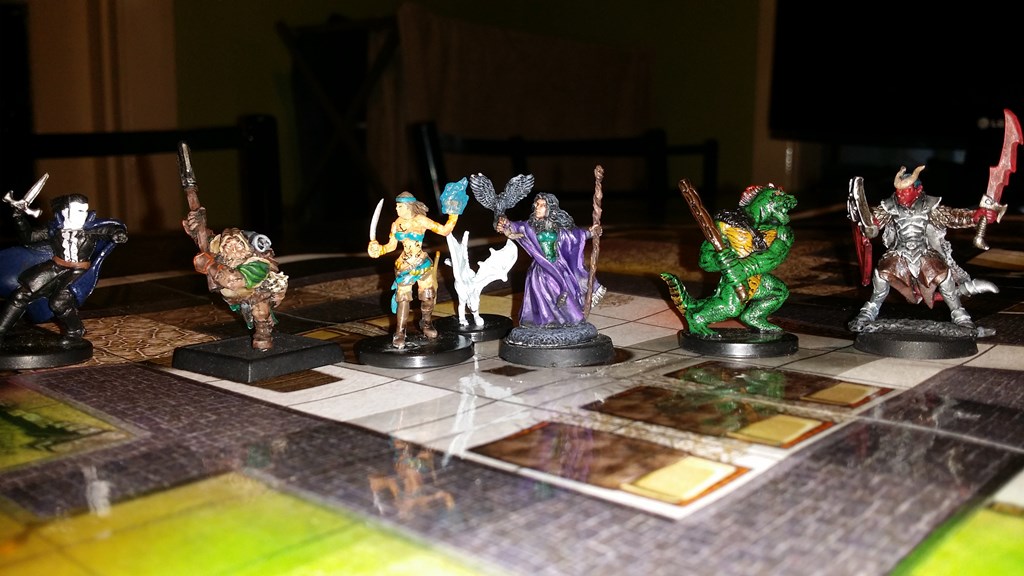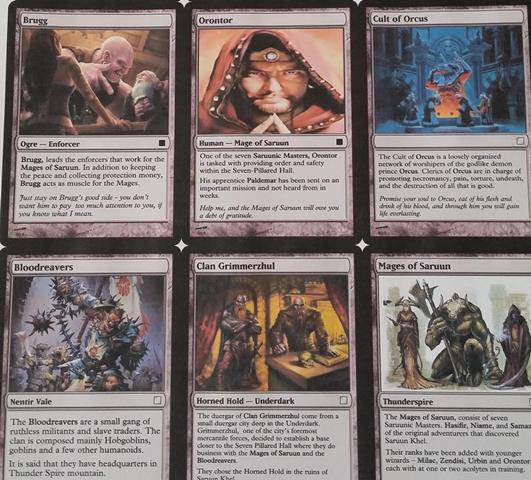Dungeons & Dragons is a talking point again!
What was simmering under the surface of nerd culture has bubbled to the top.
The nerdy things that would have you shunned in the past are coming back into mainstream. Comics, Video Games and even Tabletop Games are cool… or if not cool, not nearly as stigmatised as they once were.
Whenever I mention that Vin Diesel, Dan Harmon or The Penny Arcade team have videos of them playing D&D I get a flurry of excitement and interest to start up a gaming session.
TV shows like ‘Stranger Things’ and ‘Community’ have thrust D&D into the spotlight.
If you’re reading this, you’ve been thrown on the altar of sacrifice by your group of friends to run the game and be the Dungeon Maser (DM). Here are the ways you can all get the most out of the event.
1. Ease Into It
First of all, don’t try and run before you can walk. Especially if everyone at the table is new to D&D you’ll want to ease into this new style of gaming.
You know how video game tutorials introduce one game mechanic or ability at a time? This lets you (the player) learn how one mechanic works alone before being confronted with another.
“I honestly did not think I was going to become so emotionally invested in my character and my party.
I never thought DnD would keep me interested for more than a few sessions but now I could see myself playing for years to come through many different playthroughs, as many different characters.
Every campaign is an adventure and has left me grinning for days afterwards recounting the failures and successes of our party. The Lads shall continue to be Fancy for quite some time…. May the dice be forever in our favour.”
-Brent
Many of the Beginner sets for Tabletop RPGs do this well.
I’ve personally run many a ‘Beginner’ game like Star Wars: Edge of the Empire‘s “Escape from Mos Shuuta” or Dungeons & Dragons’ Lost Mines of Phandelver where the encounters are set up in such a way as to let the players learn something new at each step.
If you want craft your own campaign from scratch, keep in mind the principles of easing your party into the rules.
It’s ok to expect your players to have done some reading and learn the basics, not everyone learns well from a book. The rules are best learnt through practice.
Start your campaign at level one. As a new DM it helps to have new heroes. Level 1 is less complex and the character’s options become more complex as they gain levels.
“It has well exceeded my expectations.
The fine balance between what you would like to do as a character, and what will benefit the story and the group has been developed very well.
Repercussions of actions make every decision crucial and create a sense of importance even when the story may not be directly related to the character.
11/10 would bang.”
-Paul
After a few campaigns you may be comfortable to skip the first few levels or give double XP until level two or three.

2. When to say, “Yes, and…” or “No, but…”
You’ll find a lot of information out there telling you to always say, “Yes, and…” to encourage your players to role play and think outside the box. This is good advice.
I think it stems from beginner Improv lessons where you’re taught to just go with whatever your partner says.
D&D is a collaborative storytelling framework. You and the players are building this world and story together.
Sometimes it’s as simple as asking them for more details on the outcome they hope to achieve, or asking them what exact words their character is using to charm the guards.
Saying, “No” when a player asks if they can do something is shutting them down. This discourages them from offering up more in the future.
Letting a player contribute (sometimes with a few alterations) to your world building encourages the kind of innovative play that separates pen and paper RPGs from video games.
Be aware though, that if you say yes to EVERYTHING your sessions may start getting a bit silly and lean towards an Animaniacs level of ‘Zany’.
In these scenarios tempering your players with, “No, but I’ll let you do this…” can work wonders. You’re not shutting them down completely, you offer a similar (scaled down) alternative that makes more sense.
3. Make a Ruling Now Check the Rules Later
As a DM you have a number of plates spinning at once. It can be hard to keep track of everything while still building a great gaming atmosphere.
Even though I think you’re perfect in every way, sometimes you don’t know ALL the rules for everything. Especially when a player comes up with a great idea you haven’t come across.
Don’t be afraid to make a judgement call on what is possible and how the rules work. Especially when you’re new to a game system and you’re all still finding your feet.
If no one knows the rules for Grappling but your player wants to hold someone down, keep it simple and do what sounds ‘about right’.
If there’s time or the players are still discussing tactics, you can quickly grab a rulebook but in most cases it’s best to make a ruling that kind of makes sense.
Accommodating…
Creative…
Firm but fair….
To surmise, Brilliant
-Doug “The Keg”
Be up front that you’re not sure on the correct details and confirm with your players that what you’re doing in the interim sounds fair.
“I’m not sure what the difficulty of this would be, let’s say….. This many dice for now. We’ll double check when we get some time.”
Make a note of the ruling and check the rulebook later that night or the next day. If the rules are different to how you played them out, be sure to inform your players at the start of the next session.
“Just a bit of rules housekeeping. We’ve been rolling Initiative incorrectly, so just bear that in mind next combat we’ll do it the right way.”
This keeps the flow of story going and may piss off any ‘Rules Lawyers’ reading this, but Lawyers, this is your moment to have the rules ready to go to assist your GM.
4. Be Prepared
Apart from showing up on time (or perhaps a little early), being prepared to run a session is important.
So you’re gearing up to run a session. Or maybe you’ve run a session and they loved it so you’re getting ready for session 2.
Either way, you’re going to want to get organised. It’s a running theme of tabletop RPGs that players laugh in the face of a DMs best laid plans.
However, you’re going to want to have those plans there (along with some plan B through G) so you’re relatively prepared for anything.
I’m of the, Create a plan, practice the plan, and be ready to ‘Wing it’ when nothing goes to plan, school of Dming.
Even the best improvisers usually need some notes or structure to begin with. Even if you’re great with ‘winging it’ I recommend going in with an organised plan for your first few sessions.
One of my recent groups decided to circumvent my plans to keep them in a certain town. Thereby missing out on certain events I had organised to happen that evening.
Luckily though, my notes had details of other fun things they could do… like get ambushed by bandits on the road because they were travelling at night.
How you stay organised will be a matter of preference. I personally use Microsoft’s OneNote which is free, Google Docs and Evernote are other popular options.
In OneNote, Cryrid has created some nice ‘Notebooks’ laid out for organising a D&D campaign, though I usually just use them for reference.
I also print out a few things so that I can have hard copies in front of me behind the DM screen. You may be more comfortable reading from your computer directly so as with anything YMMV.
Have some spare hard copies of blank character sheets, I can guarantee you that one player will lose/forget their character sheet at least once in the first few sessions (saying nothing of an early character death that required a reroll).
If you’re running a premade adventure, read it through a few times. Often you’ll find certain twists or NPCs that appear earlier or later and you’ll want to tweak a few things based on your players’ actions.
This is made much easier if you know the shape of the story beforehand.
I also recommend creating a Facebook or Google group to keep in touch with your players and share files.
5. Have Fun
Remember you’re playing a game, a collaborative storytelling experience. Whilst you’re controlling the adversaries and bad guys, this isn’t a competition to defeat each other.
As the DM you’re setting the stage and providing the plot for the players to shine. They should feel challenged and earn their rewards, however they shouldn’t feel like you’re actively trying to kill them without good reason.
Let the players stumble themselves into danger, if they keep making bad decisions, then don’t pull your punches, let that character die. The players should always be aware what led to their character’s death could have been seen coming or avoided in some way.
Just remember you’re there to have fun too, if it’s too stressful or your players are getting out of hand be sure to mention it to them. It’s easy for them to get caught up in the story and forget you’re on the other end of things.
Don’t be afraid to take a break or organise more downtime between sessions if you need a breather.
6. You Know Your Players Better Than I Do
This final piece of advice is an important one. Don’t take anything written here (or anywhere else) as law written from on high. At the end of the day, you and your players have different needs and desires than me and mine.
What works for one group may not work for another. Try new things. Make some mistakes and communicate with your players to make sure you learn how to avoid those mistakes in the future.
In the end there is no “right” or “wrong” way to play the game, as long as everyone is having fun.
The most important thing you can do is TALK TO YOUR PLAYERS.
At the end of a session, ask for feedback on how it went. Send your players a message between sessions asking them about their character’s motivations or backstory. Perhaps ask them if they’d like to contribute some ideas to the campaign.
If a player is ruining the fun for others in some way, be up front and mature about it. Communication will iron out a lot of wrinkles because you’re all supposed to be working together.
7. Great DM Resources To Make Life Easier
Amazing magical technology is out there to make the Dungeon Masters life easier. Here are just a few of the resources that I’ve come across.
If you know of more things deserving of being added (or an article dedicated to them) please add them in the comments below.
Cards created using ‘Magic Set Editor’ and placed into card sleeves. http://magicseteditor.sourceforge.net/
General DM tools
Microsoft OneNote: https://www.onenote.com/
Specific examples in use here: https://www.reddit.com/r/DnD/comments/4y0wsq/dm_using_onenote_for_your_campaign/
Google Drive: https://drive.google.com/
DND Behind the Screen (Reddit Community): https://www.reddit.com/r/dndbehindthescreen/
Dungeonmastering.com: http://dungeonmastering.com/
Play Online
D&D Specific
If you’re playing Dungeons and Dragons 5th Edition, Wizards of the Coast have released a bunch of free resources to help you get started.
Character Sheets:
- http://dnd.wizards.com/articles/features/character_sheets
- http://media.wizards.com/downloads/dnd/StarterSet_Characters.pdf (Pre-generated characters)
